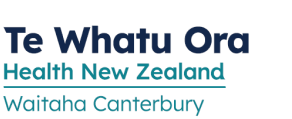What does it do?
Moclobemide is used to treat depression, and sometimes other conditions.
Before you start
- Tell your doctor if you have bipolar disorder.
- Tell your doctor if you are pregnant, planning to become pregnant, or breastfeeding.
How should you take it?
Take moclobemide regularly as directed with food and a glass of water.
What if you forget a dose?
If it is nearly time for your next dose, skip the missed dose and take your next dose at the usual time. Otherwise, take the missed dose as soon as you remember. Do not take two doses at the same time.
Can you take other medicines?
Some medicines available without a prescription may react with moclobemide including:
- cold and flu medicines containing phenylephrine (e.g. Sudafed PE®)
- omeprazole (e.g. Losec®)
- some migraine medicines, such as sumatriptan (e.g. Sumagran Active®)
Tell your pharmacist or doctor about all medicines or treatments that you may be taking, including vitamins, herbal products (e.g. St John's wort) or recreational drugs (e.g. ecstasy).
What side effects might you notice?
| Side Effects | Recommended action |
|---|---|
|
Suicidal thoughts Muscle twitching or shaking you can’t control, confusion, heavy sweating, fever |
Tell your doctor immediately |
|
Anxiety, restlessness |
Tell your doctor |
|
Dizziness, trouble sleeping Stomach upset |
Tell your doctor if troublesome |
If you notice any other effects, discuss them with your doctor or pharmacist.
Other information:
- Some people who take moclobemide may be very sensitive to tyramine which is present in some foods and alcohol (e.g. cheese, meat or yeast extracts (e.g. Marmite®, Vegemite®, Oxo®), pickled fish, broad bean pods, sauerkraut, salami and protein drinks). People taking high doses of moclobemide may need to avoid large amounts of these. Discuss with your health professional.
- It may take a few weeks for moclobemide to start working.
- Do not stop taking moclobemide without talking to your doctor first.
This leaflet contains important, but not all, information about this medicine.
Prepared by the MyMedicines Committee at Christchurch Hospital, Te Whatu Ora - Waitaha, New Zealand. January 2024
For more general information about this sheet and its contents, see: What does a My Medicines sheet cover?
Te Reo Māori
Te Reo Māori information sheets supported by Health Quality and Safety Commission New Zealand
Web links for this sheet in different formats
Click on buttons to copy web addresses for this leaflet:
If your browser does not automatically copy these links use its copy command instead.
About My Medicines
My Medicines Patient Information Leaflets (PILs) contain important, but not all, information about the medicines they describe.
For more information about the sheets, see: What does a My Medicines sheet cover?
My Medicines is developed by a team at Te Whatu Ora – Waitaha. Our team is made up of doctors, pharmacists, and a non-medical person to help us keep to plain language. We also discuss our information with specialist health professionals or groups when needed

